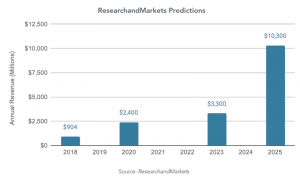
We often focus our SEO efforts on the long-term with an “always on” approach. However don’t over-look SEO when planning out your seasonal marketing campaigns. If planned out well, SEO could be your lowest hanging fruit.
Where To Focus
- Start with looking at the year ahead. Most marketers know key events or promotions that will be focused on in the coming year or seasonal trends within their business.
- Next decide on the budget for each campaign and the overall tactics you’re going to use to promote them. Determine which campaigns have the greatest opportunity and plan your SEO around those.
Keyword Research
- You can’t have SEO without keywords, so you need to conduct keyword research. As mentioned above, SEO cannot be turned on over-night, so planning ahead is key, at least 4-6 months before the promotion or seasonal trend begins.
- Use keyword research tools such as Google AdWords Planner and SEMRush to find keywords searchers will be using to find your services, products or information related to the promotion.
- Christmas or Valentine’s Day just wrap up? Analyze Keywords data from your paid search campaign, review your Google Webmaster tools for spikes in seasonal keywords that you want to be sure to include this year.
- Similar to planning your Paid Search campaign you want to pay attention to search trends. This will help to ensure you are in market to each your audience at the right time.
For example a Charity with yearly fundraising events, may want to capture search related to School Fundraisers or School Fundraiser ideas in September when search volume is at its peak, planning ahead to improve upon their Spring Fundraising event or Charity Awareness Month by getting schools onboard at the start of the school year.
Creating Content
- Once you have your keywords, you need to create content and add a page to your site related to the campaign. Ensure keywords are included in the page title and are used throughout the content on the page. It is important to focus 1 page of content on the seasonal trend or particular promotion. Competing pages for the same keywords can be harmful to the overall ability for the site to rank for the keywords.
- If posting content related to a specific promotion or event cannot be disclosed right away, you can use secondary content, direct users to related content or use “teaser” copy as an opportunity to add users to your email list for future or early release of the promotion.
Promoting Content
- Getting content up as soon as possible, at least 2-4 months prior to the promotion will give your page a chance to mature, be indexed by Google and have the best opportunity to rank.
- Start including the URL in your email marketing and social media campaigns or post the event or promotion on a seasonal site dedicated to the event. In addition, reaching out to Bloggers that has an audience that matches your target market can be an effective way to promote your content. These natural links can help to drive traffic back to the page as well as build off-page authority.
At the end of the campaign it is important to note, that although traffic may decrease as seasonal search demand diminishes DON’T REMOVE THE PAGE. Depending on the content, this page may be relevant next year with updated promotional content. The longer the page exists the strong the SEO value, next year you have a page ready to go, you just need to spruce up the content. In the interim if the page contains out of date information, you can use the page once again to collect email addresses for future promotions or provide information or a list of relevant products or services on your site.
Seasonal SEO Campaigns: The Rising Tide Lifts All Ships
The post Seasonal SEO Campaigns: The Rising Tide Lifts All Ships appeared first on Search Engine People Blog.
(187)







